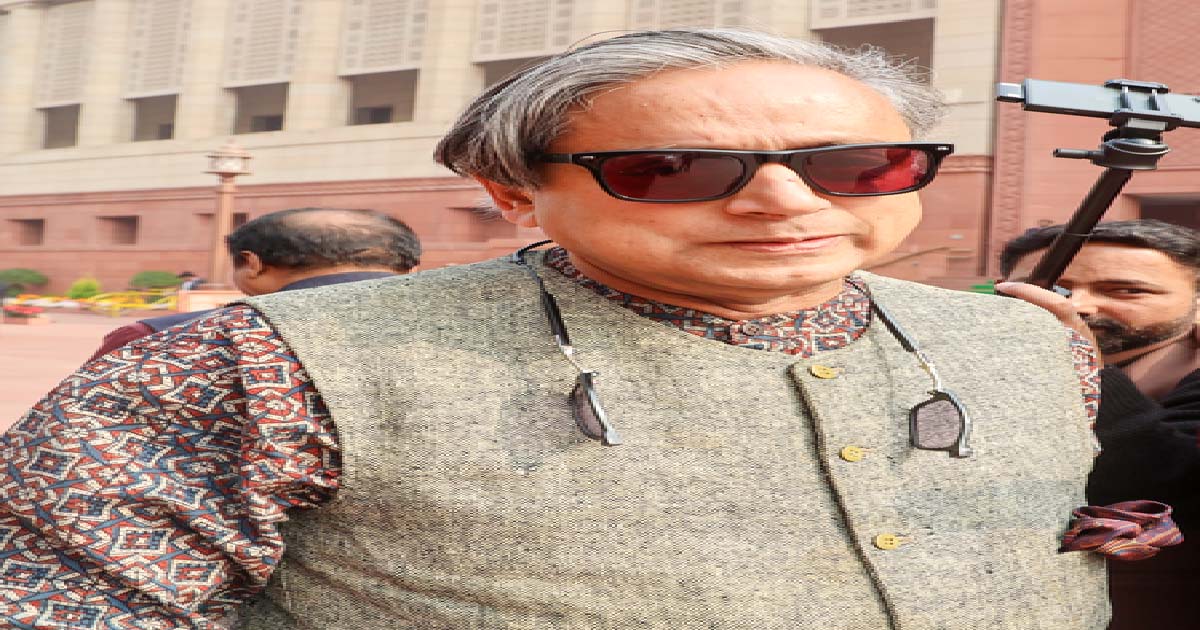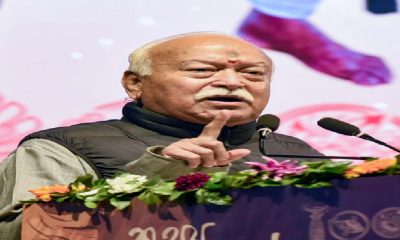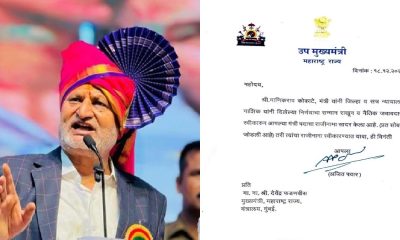International News
‘Pak should also lay claim on Rishi Sunak because his grandparents were from Gujranwala’
Former British Chancellor Rishi Sunak is set to make history by becoming the first Hindu and first person of colour to become the UK’s next Prime Minister.
The 42-year-old was born in Southampton to Hindu-Punjabi parents but his grandparents were born and raised in the city of Gujranwala in Punjab province, Geo News reported.
Sunak, in an odd way, is both an Indian and a Pakistani by heritage. He is a practising Hindu and takes his Commons oath on the Bhagavad Gita.
His paternal grandfather Ramdas Sunak left Gujranwala to work as a clerk in Nairobi in 1935. His wife, Suhag Rani Sunak, moved to Delhi first from Gujranwala, along with her mother-in-law, before travelling to Kenya in 1937 to join her husband.
Ramdas and Suhag Rani had six children, three sons and three daughters.
Rishi Sunak’s father Yashveer Sunak was born in 1949 in Nairobi. He arrived in Liverpool in 1966 and went on to study medicine at the University of Liverpool. Yashveer married Usha in Leicester in 1977.
Three years later, Rishi was born in 1980 in Southampton. His parents ran a successful pharmacy business till their retirement.
“The Sunaks are a Punjabi Khatri family from Gujranwala, now in Pakistan,” said a Twitter user, adding: “Ramdas Sunak, Rishi’s paternal grandfather, left Gujranwala to work as a clerk in Nairobi in 1935.”.
As soon as it became clear that Rishi will become the next Prime Minister, Pakistani netizens on Twitter laid claim to the incoming British leader.
“I think Pakistan should also lay claim on Rishi Sunak because his paternal grandparents were from Gujranwala who from there migrated to Kenya and then to Britain,” one user tweeted.
Another said: “Wow! What a tremendous achievement. A Pakistani has now ascended to the highest office in England. Anything is possible if you believe.”
Some suggested that it was a moment of joy for broth India and Pakistan.
“Going to bed in the US with hopes that a Punjabi from Gujranwala will be the prime minister of the UK in the morning! Both Pakistan and India should be jointly proud of this moment!” one user said.
“Since Gujranwala is in Pakistan, anyone who belonged to this city even 100 years ago is a Pakistani today,” tweeted another.
Gujranwala, known for its good food and culture of wrestling, is located about 1.5 hours from Lahore.
Before partition, when Rishi’s grandparents used to live in Gujranwala, the city used to be a locality surrounded by at least seven gates, used as entry and exit points to it, Geo News reported.
Today’s Gujranwala is a congested, densely populated city surrounded by narrow streets, filled with shops of clothes, jewellery, electronics and others. Before partition, the city had a large and thriving Hindu community.
When the communal riots erupted in British India (today’s India and Pakistan), many Hindus, Sikhs and Muslims were forced to migrate and relocate. Many Muslim and Hindu families left today’s India and Pakistan for Kenya and other countries, Geo News reported.
In Britain, Asian and rights groups have hailed the rise of Rishi as hopeful and the dawn of a new era.
Sunder Katwala, director of British Future, said: “Rishi Sunak becoming the first British Indian Prime Minister is a historic moment. This simply would not have been possible even a decade or two ago. It shows that public service in the highest office in Britain can be open to those of all faiths and ethnic backgrounds.”
The 1928 Institute, a University of Oxford-backed British Indian think tank, said: “It is incredible to see a British Indian as PM. Many of our grandparents were British subjects and now to see someone of Indian heritage in the UK’s highest office is truly wonderful.
“It shows how our community has come a long way and will be an inspiration for the next generation, although some will still attack Rishi Sunak for his heritage. Breaking this glass ceiling is a major achievement but we need more diversity in our government. We will judge Rishi by his policies and hope that our shared values across the diaspora such as seva, particularly with regards to minority and marginalised communities, are part of his leadership.”
Business
India-New Zealand FTA: PM Modi, Luxon aim to double bilateral trade over 5 years

New Delhi, Dec 22: Prime Minister Narendra Modi held a telephone conversation with New Zealand’s Prime Minister, Christopher Luxon, on Monday as the two leaders jointly announced the successful conclusion of the historic, ambitious and mutually beneficial India-New Zealand Free Trade Agreement (FTA).
During the conversation, both leaders expressed confidence in doubling bilateral trade over the next five years as well as an investment of $20 billion in India from New Zealand over the next 15 years.
The negotiations began in March this year and the two leaders concluded the FTA in a record time of nine months, reflecting the shared ambition and political will to further deepen ties between the two countries, according to a statement from Prime Minister’s Office (PMO).
“The FTA would significantly deepen bilateral economic engagement, enhance market access, promote investment flows, strengthen strategic cooperation between the two countries, and also open up new opportunities for innovators, entrepreneurs, farmers, MSMEs, students and youth of both countries across various sectors,” said the statement.
The leaders also welcomed the progress achieved in other areas of bilateral cooperation such as sports, education, and people-to-people ties, and reaffirmed their commitment towards further strengthening of the India-New Zealand partnership.
This historic FTA eliminates and reduces tariffs on 95 per cent of New Zealand’s exports – among the highest of any Indian FTA – with almost 57 per cent being duty-free from day one, increasing to 82 per cent when fully implemented, with the remaining 13 per cent subject to sharp tariff cuts.
It puts New Zealand exporters on an equal or better footing to our competitors across a range of sectors and opens the door to India’s rapidly expanding middle class, according to an official statement from New Zealand.
“The Indian economy is forecast to grow to NZ$12 trillion by 2030. The India-NZ Free Trade Agreement unleashes huge potential for our world-class exporters to the world’s largest country and will significantly accelerate progress towards New Zealand’s ambitious goal of doubling the value of exports over 10 years,” it added.
International News
‘Bodes ill for democratic process’: Tharoor flags attacks on media amid violence in Bangladesh

New Delhi, Dec 20: Congress MP Shashi Tharoor on Saturday voiced serious concern over what he described as targeted attacks on prominent media houses in violence-hit Bangladesh, while also condemning the forced suspension of visa services at Indian Assistant High Commissions in Khulna and Rajshahi amid worsening security conditions.
Bangladesh has witnessed a fresh wave of unrest following the death of radical Islamist leader Sharif Osman Hadi, who rose to prominence during the 2024 student movement that culminated in the ouster of the then Prime Minister Sheikh Hasina.
The killing has triggered widespread protests, with violence reported in Dhaka and several other parts of the country.
Protests over the death of Inqilab Moncho leader Hadi have continued to escalate, and the mobs targeted leading media organisations and locations associated with Bangladesh’s secular legacy. Reports of arson and vandalism at media establishments have sparked alarm both within the country and internationally.
Reacting to the developments, Tharoor said the attacks on the press strike at the core of democratic values.
In a post on X, he said: “Deeply concerned by the reports from Bangladesh. The targeted mob attacks and arson at the offices of Prothom Alo and The Daily Star are more than just an assault on two media houses; they are an assault on the freedom of the press and the very foundation of a pluralistic society.”
The Congress MP also expressed concern about the safety of journalists, including senior editors. He said he was worried about the well-being of Editor Mahfuz Anam and other media professionals working under increasingly hostile conditions.
Amid the unrest, India was compelled to shut down two visa application centres in Bangladesh, citing security threats. In Rajshahi, a march was organised by a group called ‘July 36 Mancha’ towards the Indian Assistant High Commission. The procession advanced towards the diplomatic mission but was halted midway following police intervention.
Similar demonstrations were also reported in Khulna, prompting authorities to suspend visa-related operations at both locations.
Condemning the disruption, Tharoor said the suspension of services would have far-reaching consequences.
“The forced suspension of visa services at the Indian Assistant High Commissions in Khulna and Rajshahi, driven by escalating security threats, is a major setback. This disruption directly impacts students, patients, and families who were finally seeing a glimpse of normalisation in cross-border mobility,” he said.
With Bangladesh scheduled to hold national elections on February 12, 2026, Tharoor warned that this atmosphere of violence and intolerance “bodes ill for the democratic process”.
The Congress leader also outlined steps for the Muhammad Yunus-led interim government to ensure stability and democratic continuity in the country.
Emphasising the need for decisive action, he said: “Protection of Journalists: Journalists should not have to post frantic messages for their lives while their offices burn. Mob rule must not be allowed to prevail.”
He further mentioned that the security of diplomatic facilities must be ensured to maintain vital people-to-people ties. “Extra protection must be provided for targeted embassies & consulates,” he said.
“Constructive dialogue must replace ochlocracy if the country is to survive this transition with any semblance of democracy. Interim Chief Mohammed Yunus must take the lead personally to ensure this,” he added, stressing the need to restore the calm.
Tharoor underscored that peace in Bangladesh holds significance beyond its borders, noting that stability in the country is “vital” for South Asia as a whole.
“We hope for a return to peace and a safe environment where the voice of the people is heard through the ballot, not through violence and intimidation,” he added.
International News
Pakistan’s ban fails: Dhurandhar turns into underground sensation

New Delhi, Dec 18: The ban on Dhurandhar by Pakistan and some Gulf nations has not affected its run at the box office. The movie is showing no signs of slowing down, but the ISI has a major problem back in Pakistan.
The movie, which deals with the 1999 Khandahar hijacking, Mumbai 26/11 attacks and also the Lyari gang wars, has not gone down well with the Pakistan establishment, and all attempts have been made to block it. However, the ISI has completely lost control over the digital space and attempts at a blackout have failed miserably.
At least 2 million illegal downloads of the film have been reported in Pakistan in just two weeks. It has gone on to become the most pirated movie in Pakistan, beating 2.0 and Raees. The ban in Pakistan may have cost the movie makers Rs 50-60 crore, but the message about Pakistan being a complete terror state has been sent across Pakistan.
Although it makes no difference to the Pakistanis about what their country is, it is a psychological win for India, which has managed to spread the message despite the movie being banned. The Pakistanis are in particular upset about the portrayal of Lyari. The establishment is so desperate to counter this narrative that it has decided to fast-track a film about Lyari showing the place in a good light.
“Indian movie Dhurandhar is yet another example of negative propaganda by the Indian film industry against Pakistan, especially targeting Lyari. Lyari is not violence — it is culture, peace, talent, and resilience. Next month, Mera Lyari will release, showing the true face of Lyari: peace, prosperity, and pride. #MeraLyari,” Sindh’s Senior Provincial Minister for Information, Sharjeel Inam Memon said on X.
The ISI, despite monitoring the internet relating to the movie, has completely failed to take control. Torrents and piracy links are all over the internet, which are being used to download the movie.
The Dark Web experts in the country are using the servers in Sri Lanka, Nepal and Malaysia to ensure that the Pakistanis are able to download the film illegally and watch it. The Pakistanis are downloading the movie through Telegram channels, underground streams and also the VPN. The very fact that it has gone on to become the most pirated film to date only shows that the ISI has failed to control the situation, and all attempts to blackout the movie have fallen flat.
Officials say that this surge in the number of downloads indicates the curiosity that the people in Pakistan have about the movie.
While some may not agree with the narrative of the film, many are appreciative of the acting in the movie. Many Pakistanis are creating reels and memes on social media, it has come to light.
The social media accounts linked to both the ISI and ISPR have been using smaller clips in the movie to mock the narrative India has set. They are trying to pass off the content with false narratives against India.
The agencies say that there are attempts by the ISI-linked social media handles to manipulate the content to suit the local narrative. Experts say that the manner in which the movie Mera Lyari is being fast-tracked for a January release and the way in which the ISI is desperately trying to block out the film suggest that the Pakistanis are on the defensive.
The fact that the curiosity around the film is growing with each passing day and the rate at which it is being illegally downloaded only shows that the ISI has failed in its actions, the expert also points out.
The Pakistan Peoples Party (PPP) has also filed a legal challenge in a Karachi court questioning the images of the late Benazir Bhutto being used. The petition seeks an FIR against the cast and crew of the movie Dhurandhar.
The film’s star cast is led by Ranveer Singh, who plays Hamza, an Indian spy who infiltrates Pakistan’s Lyari to dismantle terror networks, which are backed by the ISI. The cast also includes Akshaye Khanna, Sanjay Dutt, R. Madhavan, Arjun Rampal and Rakesh Bedi.
-

 Crime3 years ago
Crime3 years agoClass 10 student jumps to death in Jaipur
-

 Maharashtra1 year ago
Maharashtra1 year agoMumbai Local Train Update: Central Railway’s New Timetable Comes Into Effect; Check Full List Of Revised Timings & Stations
-

 Maharashtra1 year ago
Maharashtra1 year agoMumbai To Go Toll-Free Tonight! Maharashtra Govt Announces Complete Toll Waiver For Light Motor Vehicles At All 5 Entry Points Of City
-

 Maharashtra1 year ago
Maharashtra1 year agoFalse photo of Imtiaz Jaleel’s rally, exposing the fooling conspiracy
-

 National News1 year ago
National News1 year agoMinistry of Railways rolls out Special Drive 4.0 with focus on digitisation, cleanliness, inclusiveness and grievance redressal
-

 Maharashtra1 year ago
Maharashtra1 year agoMaharashtra Elections 2024: Mumbai Metro & BEST Services Extended Till Midnight On Voting Day
-

 National News1 year ago
National News1 year agoJ&K: 4 Jawans Killed, 28 Injured After Bus Carrying BSF Personnel For Poll Duty Falls Into Gorge In Budgam; Terrifying Visuals Surface
-

 Crime1 year ago
Crime1 year agoBaba Siddique Murder: Mumbai Police Unable To Get Lawrence Bishnoi Custody Due To Home Ministry Order, Says Report





















